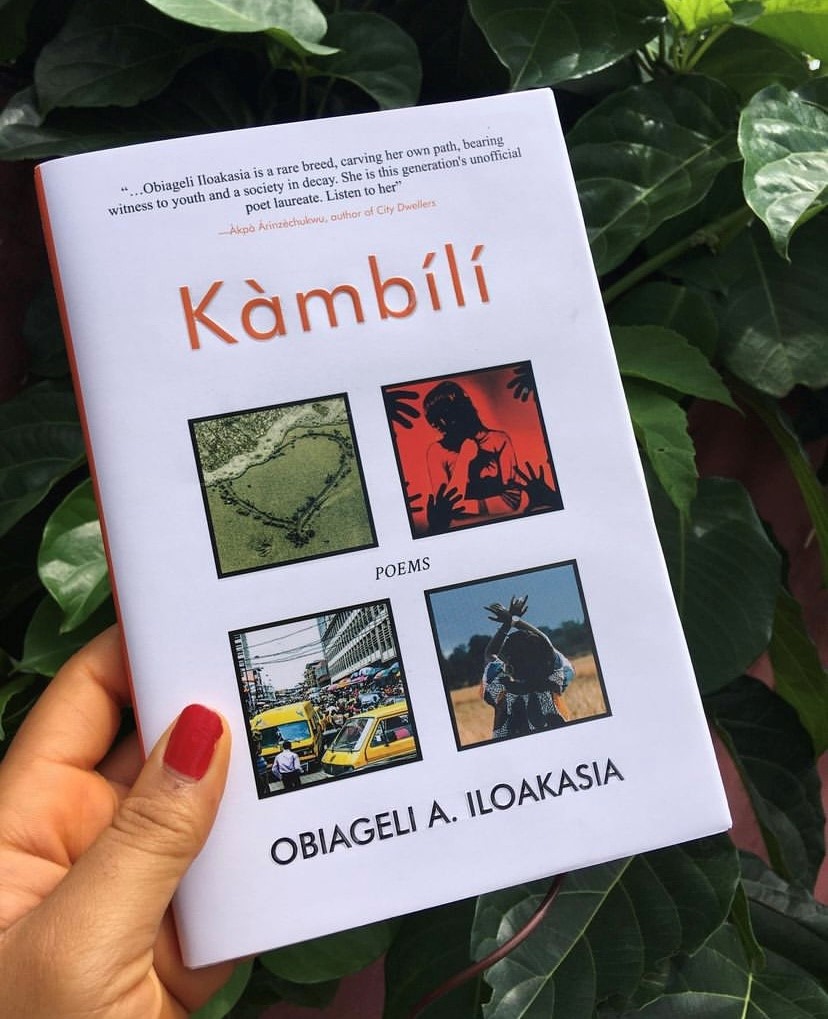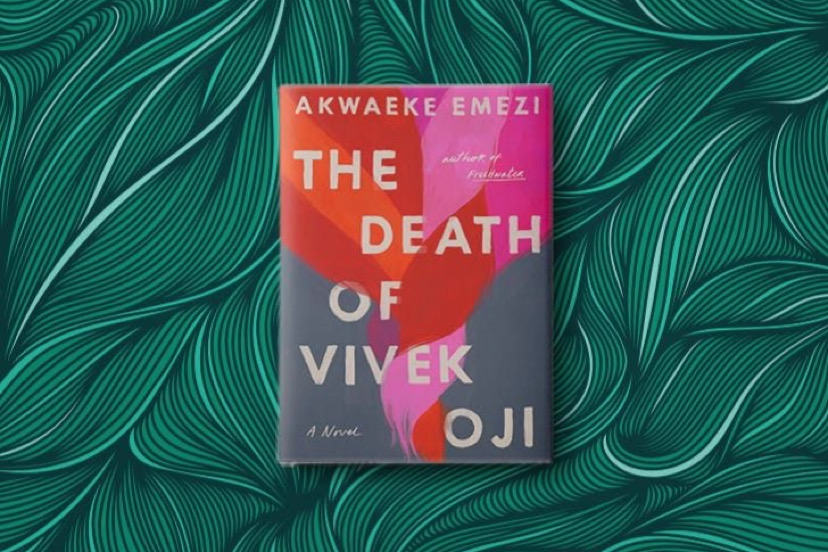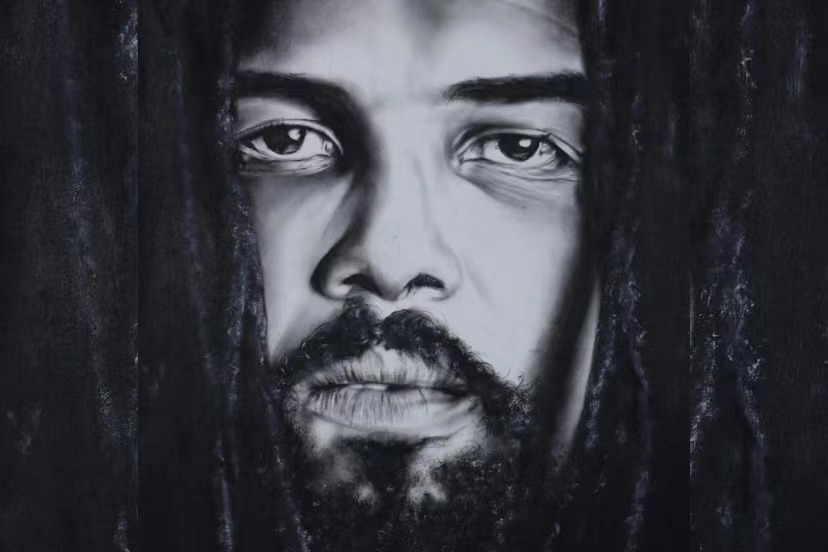John Chizoba Vincent is a film maker, Cinematographer, Video Producer and writer who resides in Lagos, Nigeria.
Book: Kambili
Author: Obiageli A. Iloakasia
Publisher: Libretto Publishers
Year of publication: 2022
ISBN: 978 – 978 – 790 – 841 – 9
Pages: 126
Reviewer: John Chizoba Vincent

“We are people in longing bodies, searching for something beautiful, hoping for someone loveable and trying to find a place we can truly call home.”
Obiageli A. Iloakasia
The very first time I encountered Obiageli was in her - comic stories, Twitter Street. In twitter street, she was the air. She went everywhere at every time and at the same time. she took her time to narrate her experiences and what is obtainable in different walls of the macro blog, Twitter. From the trolls to the daily commotions and the heartbreaks, dragging and fake life that make up the day. It was a wonderful attempt into comic stories and realism. I had the best time dissecting into the meaty book, learning more on what goes in and out of Twitter rooms, Facebook Lodge and Instagram palace and then, having the firsthand knowledge of the thematic structure of the book before the public could have it. I was impressed by her diversity and the vastness in her writing. Then, in the same year, I became obsessed of her writing style after I read her first collection of poetry, October Blues. Here, she was a fighter and activist. She stood in gap for many things and many people everywhere. This particular book opened my eyes to the kind of writer Obiageli is and most especially, her diction, mastery of her language, the ideology and belief behind every work she puts out there to the public. I must maintain that her works speak volume and reenforce memories, love, history and belief. And this is evident everywhere if you’re an avid reader or follower of her writings right from Twitter Street.
In October Blues, she was bold and courageous to have dived into such an ocean and swan out without being mentally drained. The poems in the collection were straight to home, very accessible, yet they weren’t lacking in the credibility in poetry and the callousness in our society today. However, in Kambili, we have a different Obiageli who’s braver, defiant, unashamed, and unapologetically exploring into the act of body shaming, pedophilia/child sexual abuse, rape, sexual assault, depression, self-harm, attempted suicide, and suicidal ideation yet her scream of survival is so visible and melancholic in nature that no matter where you are, you could hear her voice clear yet searching and thrusting - I want to find a home of redemption devoid of thoughts\filled with silent noises of the living and dead \ their images making jokes in my head
The book which is divided into four parts mainly Survival one to four has a total number of a hundred poems dealing majorly on different themes which include and not limited to depression, hope, sexual assault, molestation, freedom, self-harm, rape and the rest. It embodies a kind of spirit or honesty which possesses one while on the journey to read from the thought of the poet personnel. The poems within this collection lie in the depth of emotions, love, betrayal and survival. They are so bravely aligned and upright. Obiageli here manages to create a lexicon for contemporary fighters, the brokens and people with emerging but turbulent feelings for living.
In Survival one: of love, lust, memories, and in-between feelings, we have a total number of twenty poems which are a resonation of the poet’s historical past, her present fascination of lust and the feelings which lingers in her heart unable to let go. While Survival two deals on the issues of ‘of fear, depression, hope, and courage’. Survival three deals with places, cities, memories and patterns to which we have seen and witness in spaces. However, Survival four is made specifically: ‘of womanhood, abuse, and narratives that have carved a place in our hearts’.
Here in survival four, Obiageli’ focus rooted into the lives of women on the verge of breaking down, those on the wrong side of tradition whose due justice is rotten with their flesh. Women forced into motherhood by men old enough to be their fathers. Women who died whilst bearing children that will never bear their names, raped women who has given up on justice because the court thinks them abominable and insane. She went further to advocate for the lesbian women raped by men in a bid to correct their lesbianism, women rejected by the children they suffered for, and for women who didn’t eat the fruit of their labour on earth, women dancing and nobody is watching, and for dead women whose life were sacrifices on the altar of patriarchy. She didn’t forget those women that carried men that would later hate them so much for nine months, and women who built strong men that later eliminate them in the name of marriage and companionship. She stood in the gap for herself and her likes, strong women who know not how to quit but survive. Her voice begs to let these people live, to exist, to stay above water.
Obiageli becomes a miner of memories for those generations coming after her, for the unborn children who would come by her instructions in this book. For her mothers, for her sisters, women who gave her the life she lives today. For single mothers raising their children amid jest because their fathers ran away. For married women marrying themselves yet struggling to keep the family of their irresponsible husbands intact. She writes for those Christian women out there who cannot speak out because the holy book gives them no place - these men are day hunters \and become watchmen\in search of another head to take down. She preaches what Flora Nwapa could have preached if she was alive. She writes for women sexually assaulted daily in the street whilst some men cheered. For broken women who are waiting for death to bring them calm and peace - he crawled into my body\just the way he did with soul sister.\I lived another day \but we mourned sister’s loss\ that night and nights that came. She is for those women defying the odds to keep their heads high no matter where the society has placed them.
Looking at these women, they are unlike fixture in time, disheveled, crumbled and unkempt; they resemble lifeless paper dolls. But they are full of life and these are people Obiageli speaks of their survival. Her pain rages, it calms, it surges, then it breaks from each line and verse she created. She could see the world through lifted perception - if the outside world \was kind enough, \ we would go about our day\ not thinking or carrying woe\like some burdensome load I draw with hope; \silencing doubts that form memories. In her message, she is no longer a child, rather a victim caught between womanhood and teenage. Someone torn between remembered innocence and fear of tomorrow. - I know this path; \ on several occasions, I have walked here \. dancing to this macabre rhythm with wine. Furthermore, she confesses - I want to find life on that street my legs detest \ and in that village that never sees the sun.
This scream of KAMBILI – let me live, from a voice whose orientations has become tired of waiting for freedom indicates bravery and the will to conquer the forces around her, for self-elevation, and power which could only be magnetic to the bearer. It doesn’t matter whose mantle holds her future and those who are connected to her present. Iloakasia could be seen using survival as a metaphor but realism in her context is not viewed through a deceitful glass That shout of subsistence, the denial, the quest to live, a will to look straight into empty spaces and still maintain that these spaces, in as much as they are empty, there is a motivation and gut to fill them up. An urge to make these spaces look the way you want it. However, in these collections of survival, Obiageli sets out to explore life and existence. She left us with a heart unembellished and this embellishment is all in its search to be treasured, to occur among people of its kind. Its longing to live is seen in the visceral warmth of the poet’s lines and verses laced in ancient horrors of her past, the fears and torments of fights of today, and those ahead of her.
However, Obiageli posed a photographic image of our daily lives as a people through the lens of curiosity or ambition which may in the nearest future would be able to question our existence as humans trying to surviving in a terrible world as this yet she has hope that this place could be better in “a picture of this place” where she says: walk with me, dear friend — |come see this side of life and listen to the people’s music. Come watch a poet’s rendition of beautiful words woven out of this place.
This surviving skill is one of those things that Iloakasia holds so dearly to her bosom. Not that she does not understand the context in failure and the forces that could hold one down in the process of surviving but one whose mind is made up don’t think much about failing but she expects failures and when this failure comes, she gets up and tries again and again until she makes it to the promise land. Indeed, many qualities such as this make Kàmbílí a concise and powerful work.
In this regard, we cannot overlook the poet’s forms, like water, formless and tasteless. she flows, like the current of water, even over shadowing her shores. Her survival is synonymous with a story very common in East Africa. In this East Africa story, every morning, in the plain of Serengeti of Africa, a Gazelle awakens. The gazelle knows that the day ahead of it, it must run faster than the fastest lion in the plain if he wants to survive. And every morning on the same Serengeti, a lion awakens. This lion, in the same plains, knows that he must run faster than the slowest gazelle if he wants to eat that day and survive just like others in the plain.
Every change or improvement in life comes as a result of a mind colliding with new idea. Hither, kàmbílí is delightful and precise. The voice is characterized by frankness and sensualism, preventing the quest for survival from being insensitive. You could see the passion in the voice caressing the thoughts that spunk into the understanding of lovers, survivors and mind debunk of sexuality. The ability of the voice to capture the extraordinary make it focuses in symbols to explore and magnify the reader’s existence.
Yet, the openness, expressive confidence and unapologetic susceptibility in matters relating to womanhood, places, cities and Self - will are what make this collection so expressive and brave and unlikely chorale for enthusiasts and people with perfect feelings. Kambili begs to exist.
BIO
John Chizoba Vincent is a Nigeria filmmaker, Music Video Director, Cinematographer, and video Producer. Born and raised in Aba, Abia state, Nigeria. He had his education in Aba and Lagos, respectively. He has thrice been shortlisted {2017, 2018 and 2019} by EGC as one of the Poets who rock Nigeria. Also, in 2018, BN Blogs nominated him as one of the top five young Nigerian Poets to watch out from Nigeria. In July 2019, his poem was shortlisted on the top 10 finalist for Brigitte Poirson poetry Contest. His short film DISTRACTED was selected in a film festival in Sao Paulo, Brazil.
In 2020, two spoken Word videos he directed: To the girl I love by Seventy-eighth Psalmist and Iyami Osoronga by Gemini Aremo Balogun - won the PoetGist videos of the year in first and second position respectively.
In 2020, he was among the top 10 filmmakers and top five video director in 2021 and 2022 alongside Meji Alabi, NayaEffect, TG Omori, Director K and others on the BlackPride magazine award.
John Chizoba Vincent is the chief Editor of Boys Are Not Stones Initiative. An organization whose major aim is to advocate for the rights of the BoyChild. He is the founder of Philmant Universal Inc which houses Philm Republic Pictures, a sister Company, Philmax Books, Road House Review, and Zeal_30. He is also the photography editor for Libretto Magazine.
His writings have appeared in Libretto Magazine, Word Rhythm and Rhymes, MyAceWorld, Inner child Press, Kalahari Review, Tush stories, Tuck magazine, PoemifyPublishers, AfricanWriters, OpinionNigeria, PoetrySoup, Poemhunter, Voicenet, HelloPoetry, BoardSpeck, NgigaReview, Nanty Green and many others.
His poems, fictions and non-fictions have appeared in anthologies home and abroad including 84 Delicious Bottles of Wine for Wole Soyinka at 84 edited by Onyeka Nwelue and Odega Shawa, Wreaths for a Wayfarer for Pius Adesanmi edited by Nduka Otiono and Uche Umerurike, Kofi Annan Tributes for Kofi Annan and Arrow of Words – a tribute for Chinua Achebe edited by Izunna Okafor for Young Nigerian Writers Society.
He is the Author of Hard Times, Good Mama, Memories Of a Loner, Letter from Home, and For Boys of Tomorrow. John Chizoba Vincent lives in Lagos.










{{username}}{{commentConvertedTime}}
{{commentText}}